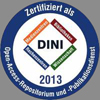- search hit 1 of 1
Online Adaptable Learning Rates for the Game Connect-4
- Learning board games by self-play has a long tradition in computational intelligence for games. Based on Tesauro’s seminal success with TD-Gammon in 1994, many successful agents use temporal difference learning today. But in order to be successful with temporal difference learning on game tasks, often a careful selection of features and a large number of training games is necessary. Even for board games of moderate complexity like Connect-4, we found in previous work that a very rich initial feature set and several millions of game plays are required. In this work we investigate different approaches of online-adaptable learning rates like Incremental Delta Bar Delta (IDBD) or Temporal Coherence Learning (TCL) whether they have the potential to speed up learning for such a complex task. We propose a new variant of TCL with geometric step size changes. We compare those algorithms with several other state-of-the-art learning rate adaptation algorithms and perform a case study on the sensitivity with respect to their meta parameters. We show that in this set of learning algorithms those with geometric step size changes outperform those other algorithms with constant step size changes. Algorithms with nonlinear output functions are slightly better than linear ones. Algorithms with geometric step size changes learn faster by a factor of 4 as compared to previously published results on the task Connect-4.
- Das Erlernen von Brettspielen durch Spiele eines Computers gegen sich selbst hat eine lange Tradition in der Künstlichen Intelligenz. Basierend auf Tesauro's herausragendem Erfolg mit TD-Gammon in 1994, nutzen viele erfolgreiche selbstlernende Computerprogramme für Brettspiele heute Temporal Difference Learning (TDL). Um jedoch erfolgreich zu sein, muss man die betrachteten Merkmale sorgfältig auswählen und oft viele Millionen Trainingsspiele absolvieren. In dieser Arbeit untersuchen wir Varianten zu TDL, insbesondere Incremental Delta Bar Delta (IDBD) und Temporal Coherence Learning (TCL), ob sie das Potential besitzen, wesentlich schneller zu lernen. Wir schlagen eine neue TCL-Variante mit geometrischer Schrittweite vor und vergleichen diese mit verschiedenen anderen Schrittweiten-Adaptionsverfahren aus dem Stand der Technik. Wir zeigen am Beispiel des Brettspiels "Vier Gewinnt" (Connect-4), dass Algorithmen mit geometrischer Schrittweite deutlich (um den Faktor 4) schneller lernen als Standard-TDL-Verfahren.
| Author: | Samineh Bagheri, Markus Thill, Patrick Koch, Wolfgang Konen |
|---|---|
| URN: | urn:nbn:de:hbz:832-cos-704 |
| Series (Serial Number): | CIplus (3/2014) |
| Document Type: | Preprint |
| Language: | English |
| Year of Completion: | 2014 |
| Release Date: | 2014/12/19 |
| Tag: | Board Games; N-tuple Systems; Online Adaptation; Reinforcement Learning; Temporal Difference Learning (TDL) |
| GND Keyword: | Maschinelles Lernen; Modelllernen; Adaptive Schrittweite |
| Source: | IEEE Transactions on Computational Intelligence and AI in Games, 2015 |
| Institutes and Central Facilities: | Fakultät für Informatik und Ingenieurwissenschaften (F10) / Fakultät 10 / Institut für Informatik |
| CCS-Classification: | I. Computing Methodologies / I.2 ARTIFICIAL INTELLIGENCE / I.2.6 Learning (K.3.2) |
| Dewey Decimal Classification: | 000 Allgemeines, Informatik, Informationswissenschaft / 004 Informatik |
| Open Access: | Open Access |
| Licence (German): |  Creative Commons - Namensnennung, Nicht kommerziell, Keine Bearbeitung Creative Commons - Namensnennung, Nicht kommerziell, Keine Bearbeitung |


